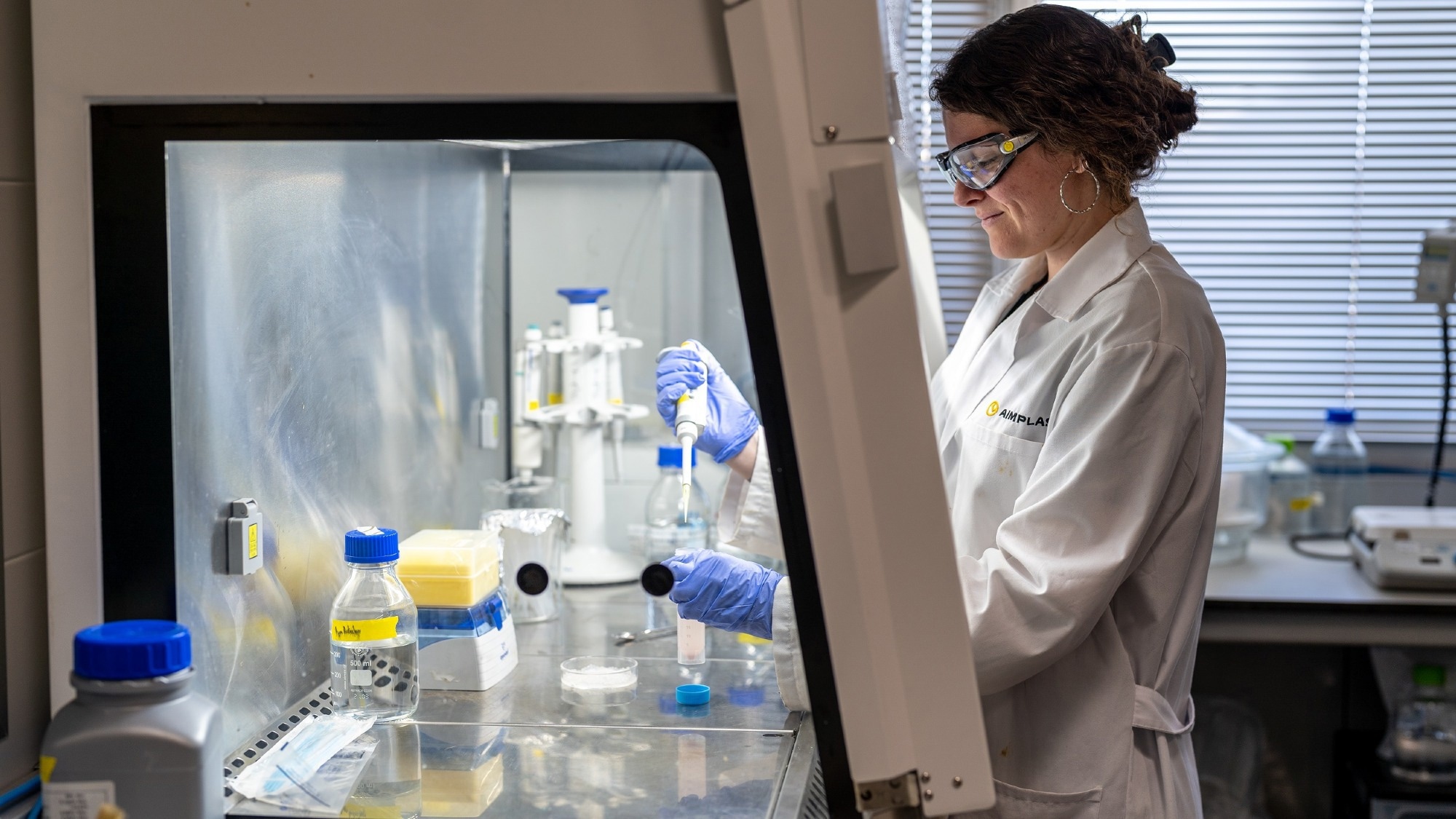The BIOENCAPSULACIÓ Project introduces new algae-based hydrogels with high capacity to retain soil moisture along with agricultural films with biostimulant properties, both products are biodegradable and functionalized with these microorganisms, to the formulation of plasticulture products.
This research project is funded by the Valencian Institute for Business Competitiveness and Innovation (IVACE+i) and the ERDF.

Image Credit: AIMPLAS
Including microorganisms in biodegradable plasticulture products for farmland is a solution that enables these environmental probiotics to enter the soil as the product degrades, which promotes an increase in crop capacity and efficiency without the need to add chemicals to the soil. This is the aim of the BIOENCAPSULACIÓ Project led by AIMPLAS, the Plastics Technology Centre, and funded by the Valencian Institute for Business Competitiveness and Innovation (IVACE+i) and the ERDF.
This research project was created to address the urgent need to reduce the use of chemical fertilizers in agricultural fields, which is directly related to fundamental aspects for society such as the reduction in the use of chemicals, food safety, water pollution and efficient water consumption.
In the words of Chelo Escrig, lead researcher in the Agriculture and Aquatic Environment group at AIMPLAS, “We are developing new biodegradable plasticulture products that stimulate growth and improve the efficiency of crop nutrient assimilation. These products are functionalized with living microorganisms, environmental probiotics that we add to new, more sustainable natural hydrogels to maintain soil moisture, and biodegradable mulch agricultural films with biostimulants that decompose after their useful life and provide the soil with nutrients to enrich it and avoid the use of synthetic fertilizers.”
Specifically, hydrogels are being obtained from polyelectrolytes of natural origin found in algae, such as alginate and carrageenan. Microorganisms are included in the formulation of these hydrogels to enhance the soil’s water retention capacity for the agriculture industry, thus, contributing to farming practices through improved water management. Moreover, the environmental probiotic biostimulants present in these hydrogels improve crop efficiency and nutrient assimilation by plants.
AIMPLAS is also developing biodegradable mulch films functionalized with these probiotics. Once their useful life ends, the films release microorganisms that stimulate metabolic pathways involved in plant development and growth by enhancing nutrient assimilation. This approach aims to reduce the need for additional chemical substances.
The technological centre is testing these new sustainable solutions in horticultural products.
Both developments have been assessed to ensure that the microorganisms do not compromise the mechanical and chemical properties of the hydrogels or films, and that these biostimulants maintain their properties during plastic transformation processes, such as film extrusion.
The improvement in crop yield and reduction in the environmental impact in each course of action are also being evaluated, as the Llíria Wine Cooperative, Picda and Grupo Sanz are collaborating on this project.
About AIMPLAS
At AIMPLAS, the Plastics Technology Centre, we have a twofold mission: to provide added value to companies so they can create wealth and quality employment, and to meet societal challenges to improve people’s quality of life and ensure environmental sustainability.
We are a non-profit research association and member of REDIT (Network of Technological Institutes of the Valencia Region) offering enterprises in the plastics industry comprehensive and customized solutions, including development and innovation projects, training, competitive and strategic intelligence, and technological services such as analysis, testing and technical assistance.
We also support the 17 SDGs of the UN Global Compact when carrying out our work and corporate social responsibility activities.
